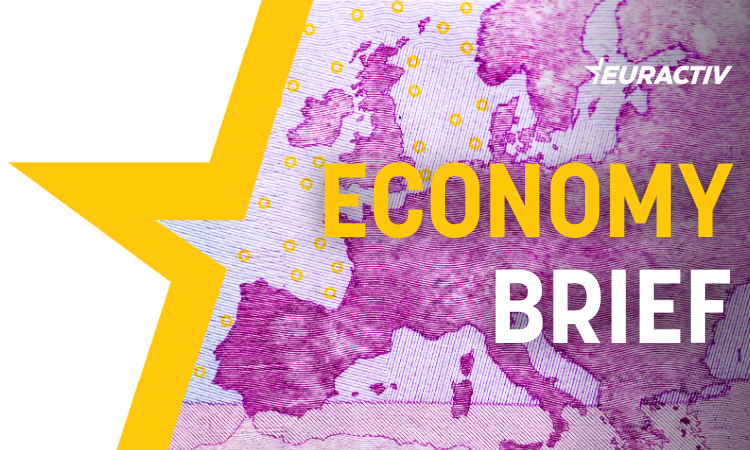
Earlier this week, the International Monetary Fund (IMF) published its latest forecasts for the world economy. China, the fund predicted, will grow by 4.6% this year; Russia, by 2.6%; the US, by 2.1%; and the eurozone, by a paltry 0.9%.
Prima facie, Europe’s expected low growth should be a serious cause for concern.
China, after all, is officially viewed by the EU as “a partner for cooperation, an economic competitor and a systemic rival”. Russia, meanwhile, is described as a “long-term and direct threat for European security”. The US, although an ally, is also sometimes depicted as a direct economic competitor by European officials.
If they are all expected to grow faster than Europe this year, shouldn’t we be worried?
Perhaps – but perhaps not.
First of all, and as many other economists have noted, GDP growth alone often fails to provide a fully accurate picture of the current state – or future prospects – of a given economy.
Europe, for instance, remains notably less corrupt, more economically equal, and per capita much richer than both China and Russia. Average life expectancy in Europe is also significantly higher than in the US, where it is declining.
Second, even if we accept for the sake of argument that a country’s GDP provides an accurate assessment of its overall economic health, we should resist taking the IMF’s forecasts as statements of inevitable fact.
Indeed, in its previous projections, published just three-and-a-half months ago, the fund predicted that the eurozone would actually grow more than Russia in 2024 (1.2% vs 1.1%, respectively).
Third, even if we take the IMF’s projections as accurate, one may still discern significant reasons for optimism in the fund’s data.
In particular, Europe’s economy is set to fare significantly better this year than it did last year, in both absolute and relative terms: the eurozone is predicted to grow 0.4 percentage points more this year than it did in 2023, while the discrepancies in growth rates between the bloc and the three other aforementioned countries are also expected to decline.
The (economic) problem of induction
In general, it seems that there are two major difficulties confronting anyone attempting to infer Europe’s – or, for that matter, any country’s or bloc’s – economic prospects from current data.
The first, as previously indicated, is the ambiguity inherent in much of the data itself.
To give another example: On Thursday (1 February), S&P Global reported that conditions in the eurozone’s manufacturing sector deteriorated last month – as they have since July 2022. Meanwhile, on the same day, the same agency reported that Russia’s manufacturing sector expanded for the 21st consecutive month. A cause for concern?
Maybe – but maybe not. S&P also noted, for instance, that business confidence in the eurozone rose to a nine-month high in January, while conditions in Russia’s manufacturing sector are now at their weakest since July 2023. So should we be optimistic instead?
The second, deeper reason why making projections so difficult is that, even if the data is completely unambiguous, making inferences from such data – especially at a time of such immense geopolitical uncertainty – is virtually impossible. Indeed, it is arguably irrational.
This fact has been recognised before. In A Treatise of Human Nature, the 18th century Scottish philosopher David Hume pointed out that, in order to validly make “inductive inferences” – that is, infer future from present and past data – one must assume the principle of the uniformity of nature. In other words, one must assume that the future, at least in certain key respects, resembles the past.
The current validity of this principle – at least when making macroeconomic projections – is highly questionable.
At Davos last month, European Central Bank President Christine Lagarde pointed out that the world is entering a period of “non-normality” as countries prioritise “security” over “efficiency” in their trade relations.
Christian Lindner, the German finance minister, similarly noted that increasing geopolitical fragmentation, rising debt levels, and the growing use of artificial intelligence mean that people should prepare for a “new normal” in global political and economic affairs.
Hume himself ultimately rejected the rationality of inductive inferences completely. His reasoning was that any attempt to justify the principle of uniformity would ultimately be viciously circular, for one could only justify the principle that the future will resemble the past by claiming that, in the past, the future has resembled the past.
Economists shouldn’t be tempted by such extreme scepticism – induction, after all, plays a crucial role in other scientific fields, as well as everyday life. (How else do I know, for instance, that my pen will fall if I drop it?)
But, at the very least, we should legitimately ask: At a time of such profound geopolitical volatility, are economic forecasts ever warranted? Indeed, is it even rational to make them at all?
Chart of the week
As this week’s graph shows, Germany’s economic growth has closely tracked that of the EU as a whole over the past decade – a fact that is perhaps unsurprising, given that the country accounts for roughly a quarter of the bloc’s total GDP.
Thus, whatever the fate of the EU’s economy, it will plausibly mirror Germany’s – although, as this week’s Brief suggests, we probably cannot infer what exactly this fate is.
Graph: Esther Snippe. You can find all previous editions of the Economy Brief Chart of the week here.
Economy Policy Roundup
Germany’s Lindner wants to topple EU corporate due diligence law. German liberals have confirmed the Berlin government would abstain in voting on the EU’s proposal for the Corporate Sustainability Due Diligence Directive (CSDDD), which de facto works as a ‘no’. The law, which would see companies becoming liable for human rights breaches in their supply chains, is described as too far-reaching by FDP chief Christian Lindner and Justice Minister Marco Buschmann. The majority for the law now likely hinges on Italy, which so far could not be reached for comment. Read more.
German automakers call to split EU-Mercosur deal to bypass French ‘non’. The EU-Mercosur trade agreement should be split into distinctive parts to circumvent French resistance based on agricultural issues, the German car industry has proposed, arguing that it was needed to boost export markets other than China. Meanwhile, French President Emmanuel Macron confirmed that negotiations on the agreement have been halted, effectively cancelling an EU Commissioner’s trip hours before he was meant to travel to Brazil to sign it.
A new study estimates that additional public investments worth €260 billion per year are needed for the EU bloc to reach its goal of full decarbonisation by 2050. The study, commissioned by the Greens/EFA group in the European Parliament, also noted that extra private investments amounting to €100 billion per year will also be required. During a fiery press briefing, Greens co-president Philippe Lamberts suggested that the fiscal rules currently being negotiated in ‘trilogue’ discussions would render it “legally impossible” for the bloc to achieve its target. Read more.
The EU allegedly threatens to “sabotage” Hungary’s economy if Budapest fails to approve a €50 billion Ukraine aid package. The EU subsequently denied the Financial Times‘ original report, with one senior official describing the document referred to in the article as a “background note [which] describes the current status of the Hungarian economy”. Whatever the truth of the matter, Hungary agreed to the deal almost immediately at the special Council Summit on Thursday (1 February). Read more.
The International Monetary Fund (IMF) downgraded its growth forecast for the eurozone this year from 1.2% to 0.9%. The fund cited the continued impact of the energy crisis and weaker-than-previously-expected consumer demand as key factors which influenced its decision. Experts were (unsurprisingly) divided on how to interpret the data. Read more.
Literature corner
Road to net-zero: Bridging the green investment gap
China is the world’s sole manufacturing superpower
What’s the matter with Europe?
[Edited by Zoran Radosavljevic]







